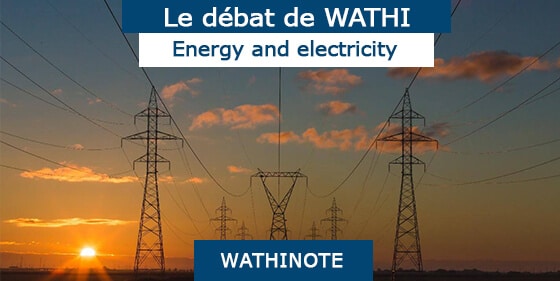

Author: The World Bank
Type of publication: Press Article
Date of publication: April 2018
Access to electricity in West Africa is at 52 percent, with shortages of up to 80 hours per month, and yet electricity there remains among the costliest in the world, at $0.25 per kilowatt-hour, more than twice the global average. Domestic demand in West African countries is often too low to attract investments in large projects that benefit from economies of scale. Instead, these countries rely on small-scale, expensive oil-fired power generation. Lack of planning has led to reliance on emergency rental plants, which further inflates costs.
Improving electricity access and reliability in West Africa requires close collaboration among neighboring countries. The West Africa Power Pool (WAPP) is a cooperation of 14 countries–Benin, Burkina Faso, Cote d’Ivoire, the Gambia, Ghana, Guinea, Guinea-Bissau, Liberia, Mali, Niger, Nigeria, Senegal, Sierra Leone, and Togo– with 27 national electricity utilities, working towards an integrated regional power market.
Making the connection
Currently WAPP is completing the physical interconnections to send power across borders. About 7 percent of the region’s electricity is already traded among the 10 already connected countries. It is anticipated that by early 2020s the most critical cross-border links will be in place, making it possible for electricity to flow throughout West Africa from countries with cheaper, cleaner and more abundant energy resources to those lacking them.
Integration of electricity grids will improve overall reliability and make electricity more affordable simply by allowing all countries to benefit from least-costly resources available in the region
The World Bank estimates the economic benefits of a regional power market in West Africa at US$5-8 billion a year. These benefits come from lower costs of operation which, in turn, reduce generation costs.
Integration of electricity grids will improve overall reliability and make electricity more affordable simply by allowing all countries to benefit from least-costly resources available in the region. It will also make power generation more sustainable by displacing baseload oil-fired power generation with cleaner sources of electricity such as natural gas, solar, and hydropower.
Technical and payment challenges
The complexity of the WAPP power market creates new political and technical challenges that will need to be addressed. A well-functioning regional power market requires not only the right infrastructure, but also strong collaboration among policy makers, regulators, and utilities, at the national and regional level. It also calls for simultaneous policy, regulatory, and institutional steps. Trading institutions and stronger commercial arrangements will need to be developed further.
To ensure that West African countries realize regional power integration to its fullest potential, the Task Force recommends a series of actions to improve confidence in the regional power market. These include improving sector creditworthiness, strengthening contracts, providing guarantees and involving regional institutions.
Les Wathinotes sont soit des résumés de publications sélectionnées par WATHI, conformes aux résumés originaux, soit des versions modifiées des résumés originaux, soit des extraits choisis par WATHI compte tenu de leur pertinence par rapport au thème du Débat. Lorsque les publications et leurs résumés ne sont disponibles qu’en français ou en anglais, WATHI se charge de la traduction des extraits choisis dans l’autre langue. Toutes les Wathinotes renvoient aux publications originales et intégrales qui ne sont pas hébergées par le site de WATHI, et sont destinées à promouvoir la lecture de ces documents, fruit du travail de recherche d’universitaires et d’experts.
The Wathinotes are either original abstracts of publications selected by WATHI, modified original summaries or publication quotes selected for their relevance for the theme of the Debate. When publications and abstracts are only available either in French or in English, the translation is done by WATHI. All the Wathinotes link to the original and integral publications that are not hosted on the WATHI website. WATHI participates to the promotion of these documents that have been written by university professors and experts.
